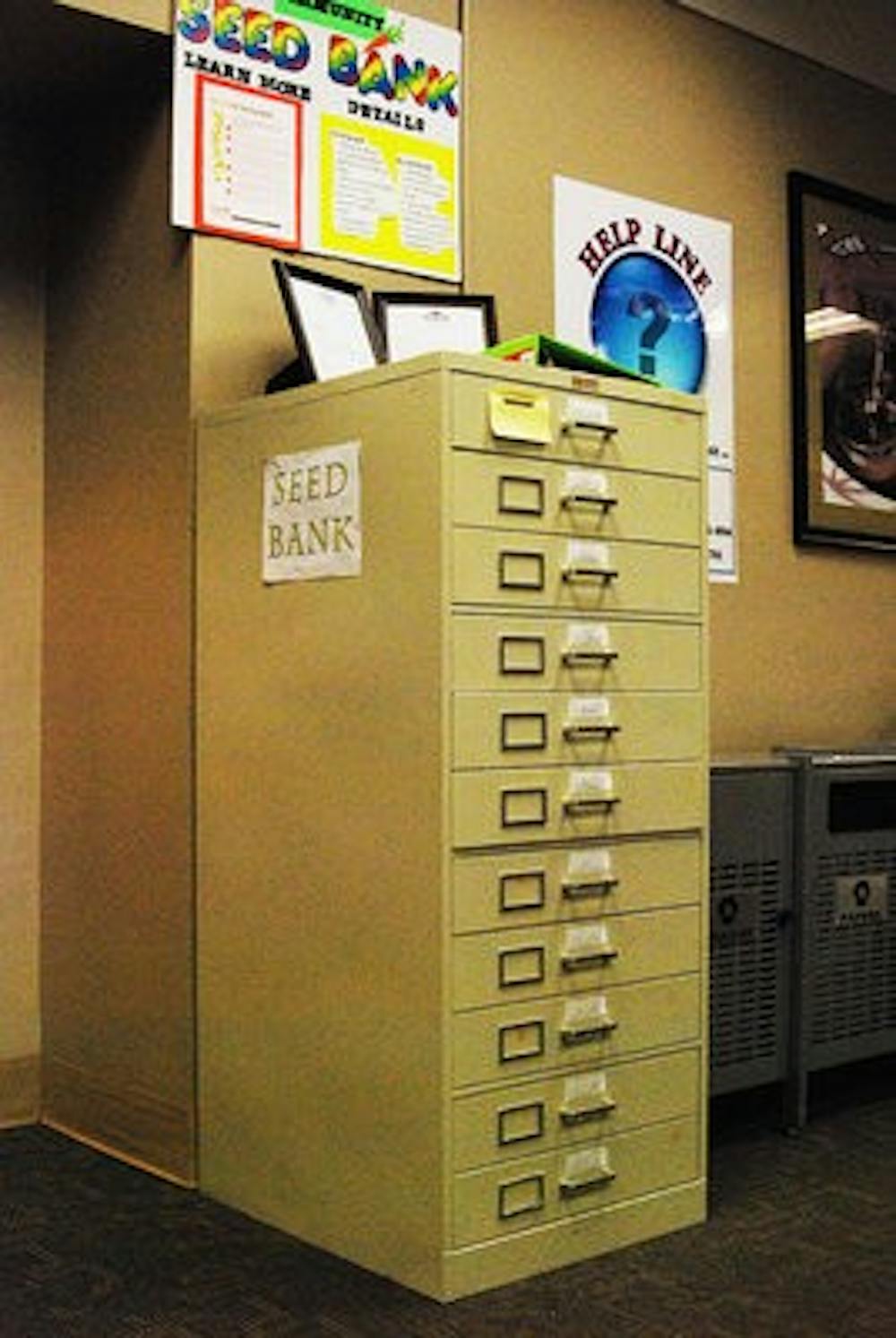The Auburn Real Food Challenge debuted its new seed bank on Thursday, March 20, on the first floor of Ralph Brown Draughon Library.
Hannah Hauan, junior in horticulture, is a member of the Auburn Real Food Challenge.
"This is really just a place for people to donate or take seeds," Hauan said. "We hope it will help bring farmers and the community together."
This year, Hauan said she decided to make the Seed Bank her main focus.
"We had the idea last year, but nothing really came of it," Hauan said. "I have been talking to farmers out at the community gardens, and they have been really excited about the idea, so they kind of encouraged me to make this a reality."
According to Hauan, the seed bank is easy to use.
"All the seeds are in a cabinet in the library," Hauan said. "Anybody can come in and take whatever they want. The next year, they can bring them back to the cabinet and maybe write a few notes about the seeds and about what worked and what didn't work."
The Auburn Real Food Challenge is just one chapter of a national organization.
The goal of the Challenge's campaign is to ensure at least 20 percent of dining hall food is real by 2020.
Rosa Cantrell, junior in agricultural communications and president of the Auburn Real Food Challenge, said real food is an important cause.
"Real food is defined as local, humane, fair and ecologically sound," Cantrell said. "We work with campus dining to get real food on campus. We try to unite the students together, help them reconnect with their food and help them understand where it's coming from."
According to Cantrell, education is key to understanding the food system.
"We need to help students learn about what they are eating and unite them to work with our institutions because they have billions of dollars in the food system," Cantrell said. "We want to shift that money toward just and sustainable food."
The Auburn Real Food Challenge also runs the Community Garden on West Samford Avenue.
Sara Geonczy, senior in environmental science, is head of the Dining Committee.
Geonczy said the community garden is open to everyone.
"It was run by a sorority for a while, but the Real Food Challenge took it over the spring of 2012," Geonczy said. "We manage the garden and rent out plots to anyone who wants one. We try to get a lot of students involved. Students actually have a discounted rate to rent a plot, but a lot of faculty and community members are involved, as well. "
According to Geonczy, the Community Garden and the Seed Bank go hand-in-hand.
"They both aligned with our goals in the Real Food Challenge," Geonczy said. "We are hoping it will become a resource for community gardeners. Even if you don't have a plot at the community garden, it can be a resource for your garden at home."
Do you like this story? The Plainsman doesn't accept money from tuition or student fees, and we don't charge a subscription fee. But you can donate to support The Plainsman.





